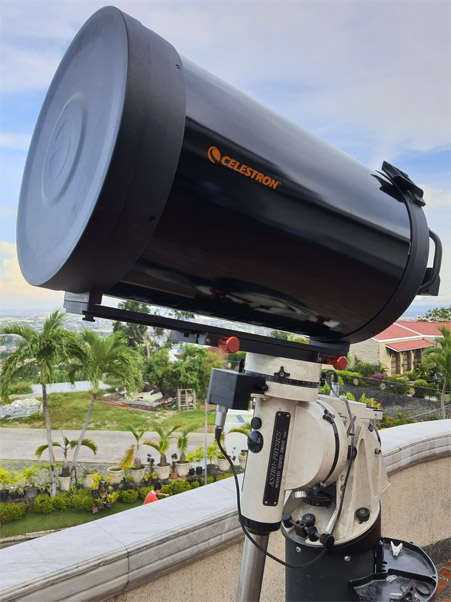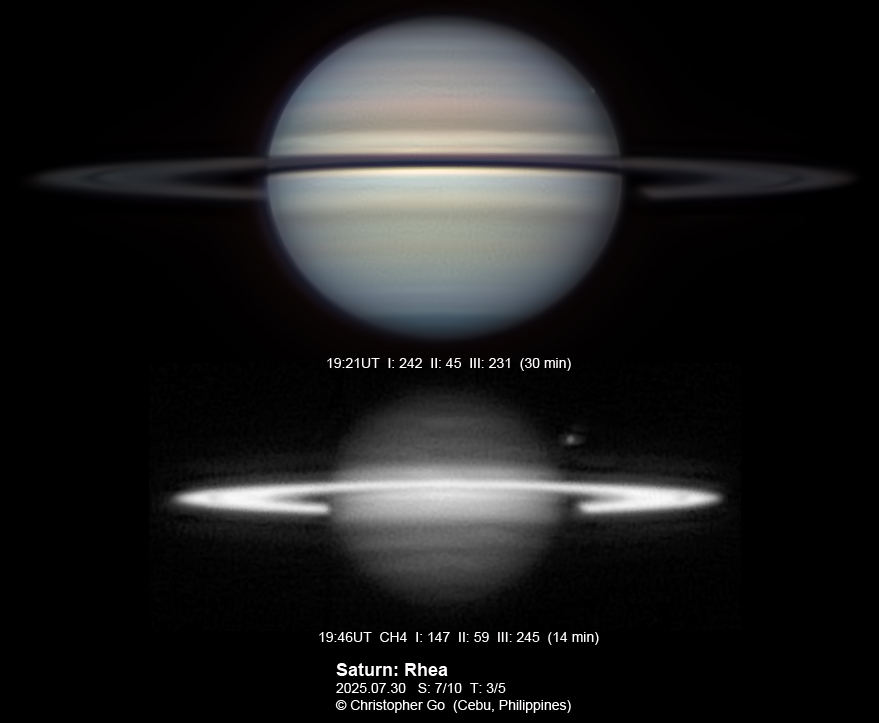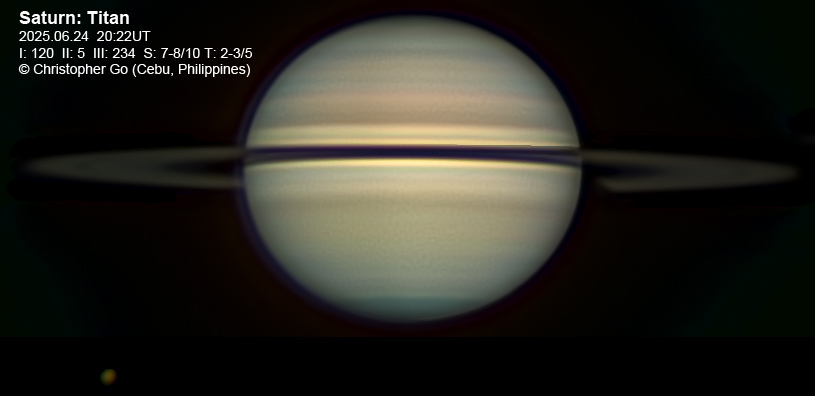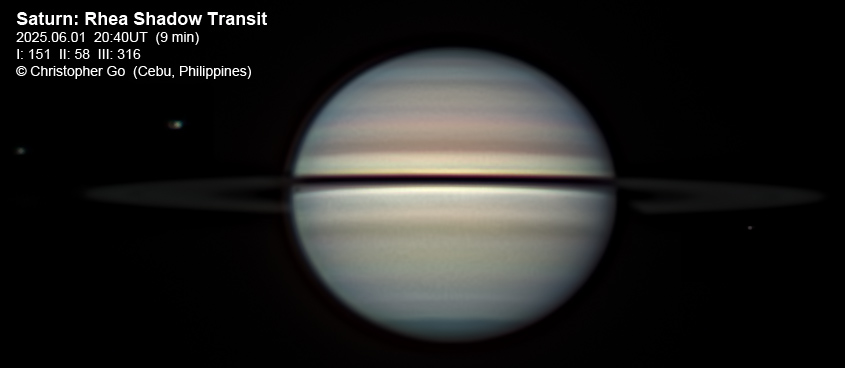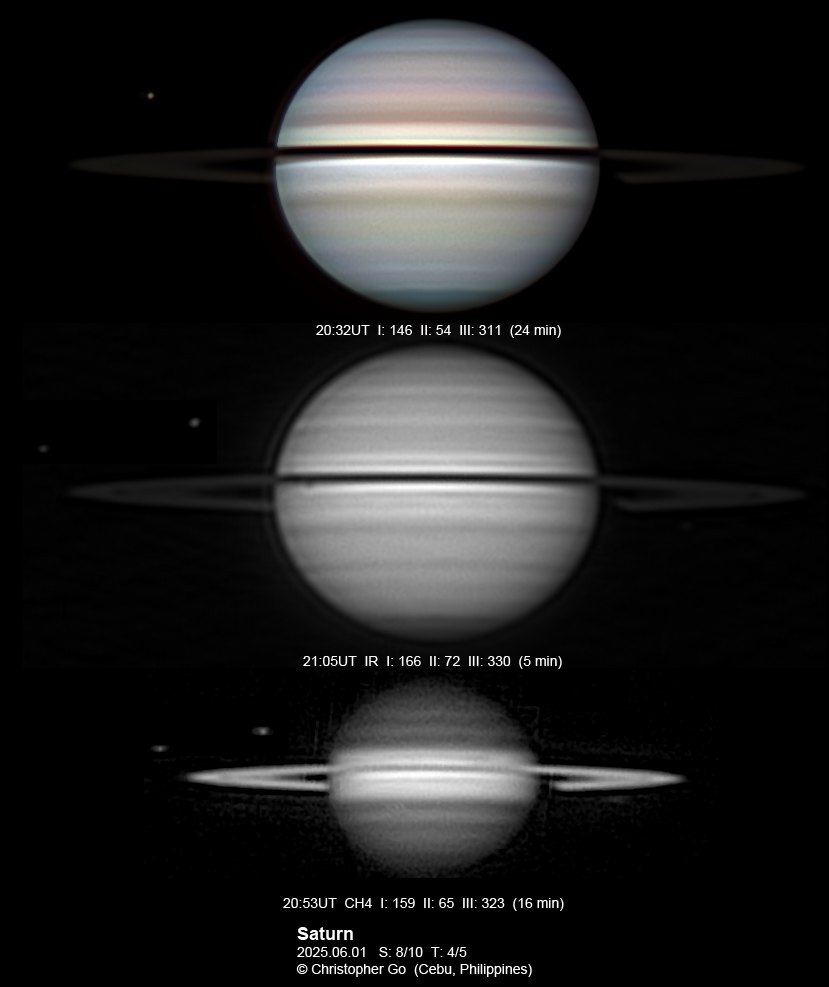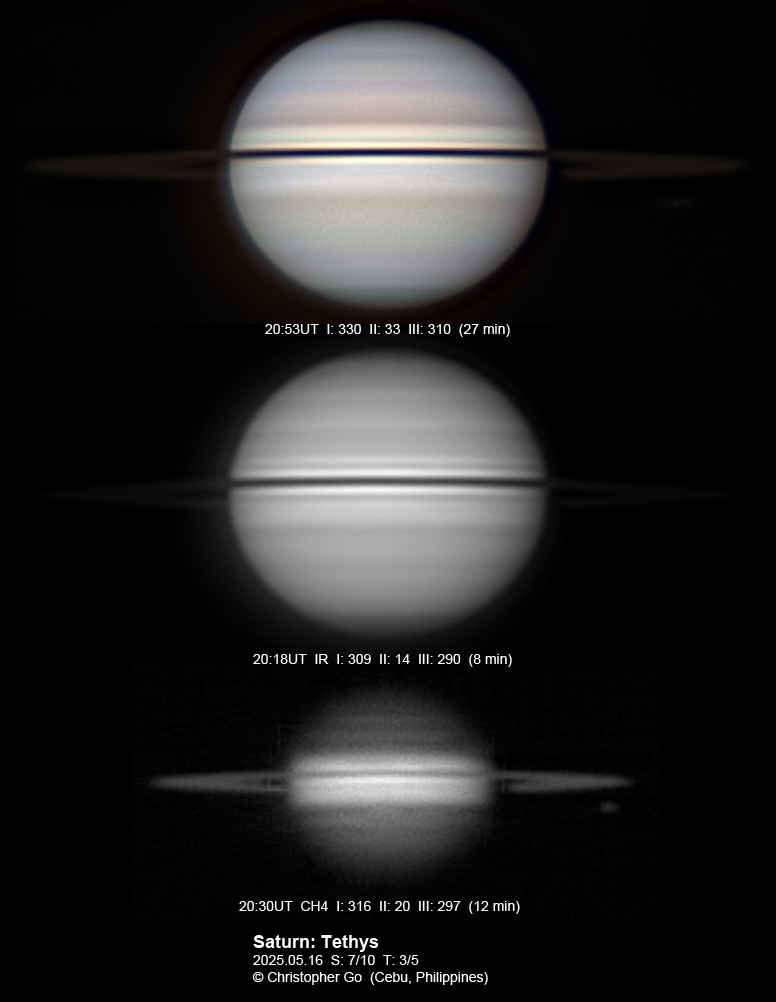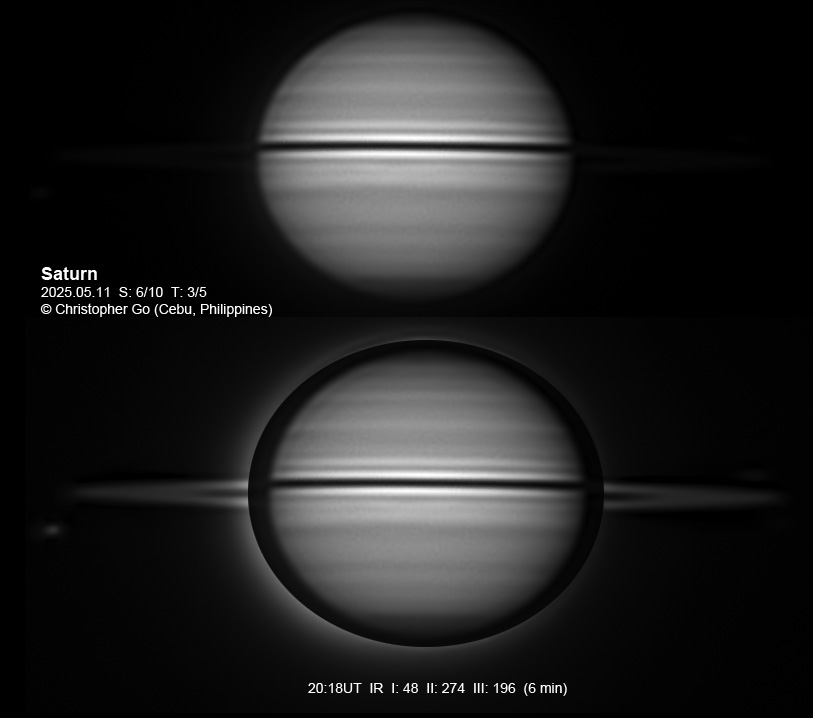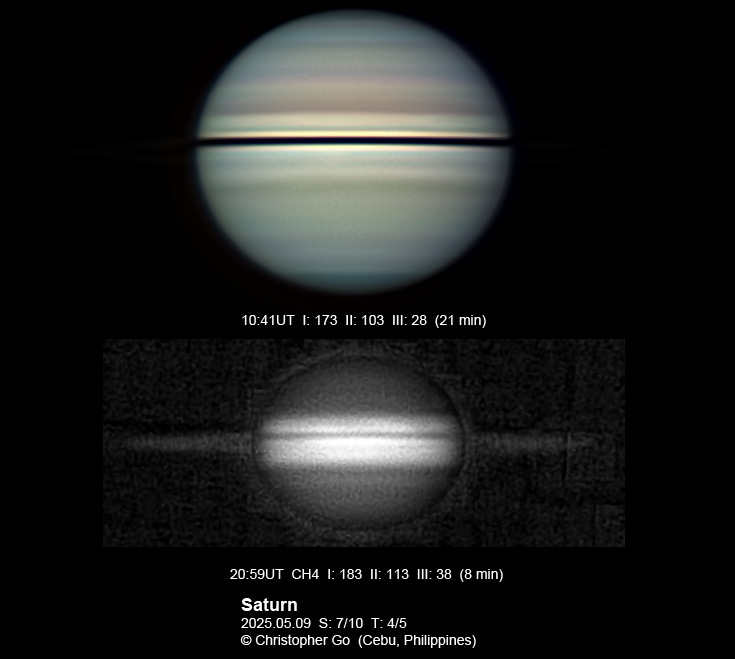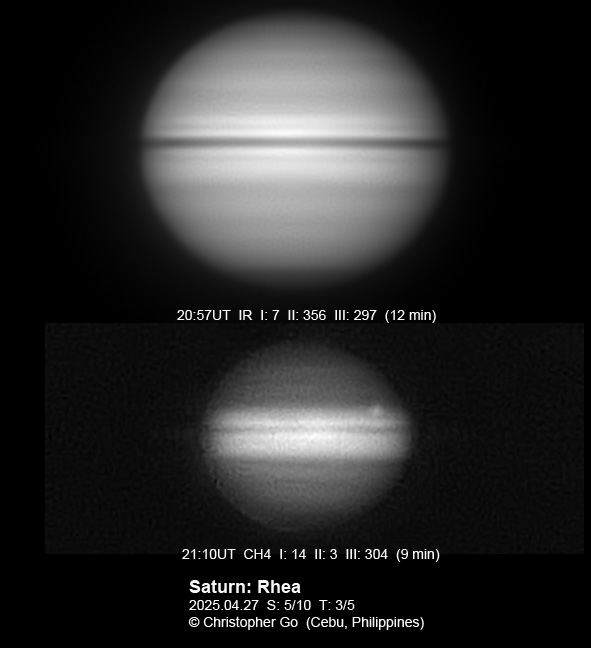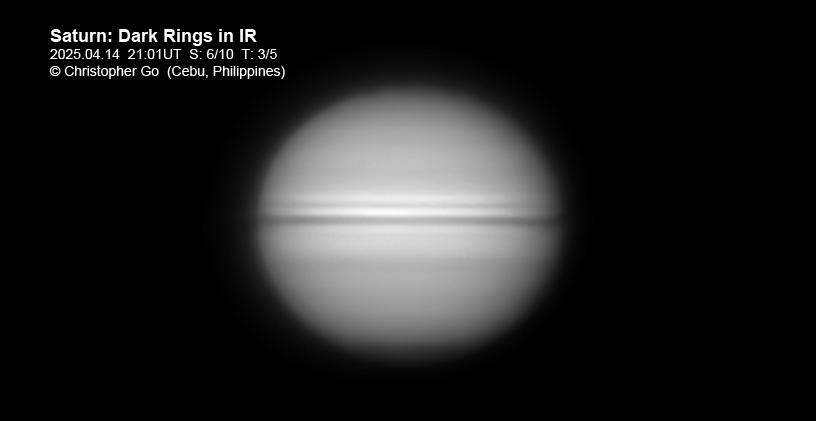These images were taken using a Celestron C14 mounted on an Astrophysics AP900GTO mount and a QHY5III585M and the QHY5III585C camera. RGB is done using a set of Chroma Technology RGB filters on a Starlight Xpress Motorized filter wheel. Methane band images are done using a Chroma Methane Band filter (889nm 18nm bandpass). Amplification is done using an Astrophysics Convertible Barlow working at 2.5X. I use an Prima Luce ESATTO 2 focuser.
Image acquisition was done using Torsten Edelmann's Firecapture 2.7 software. All images are NORTH UP! Processing was done using AutoStakkert! and Registax.
For info on Saturn's belts and zones please click this link.
You can also see my past images of Saturn at the ALPO Japan Kansai Branch site.
